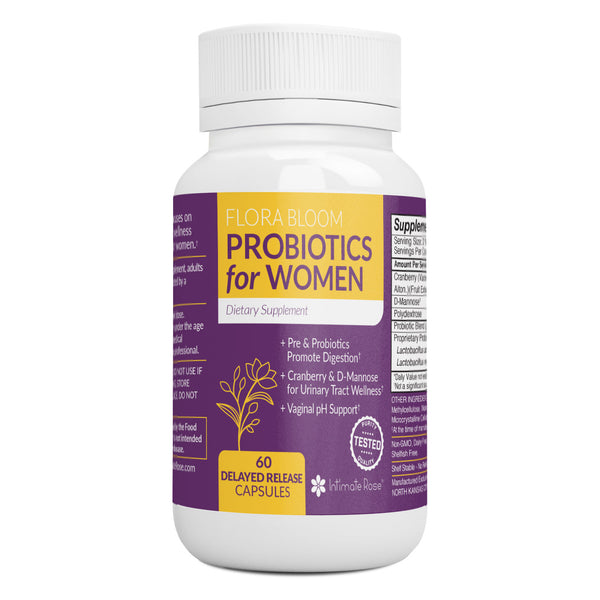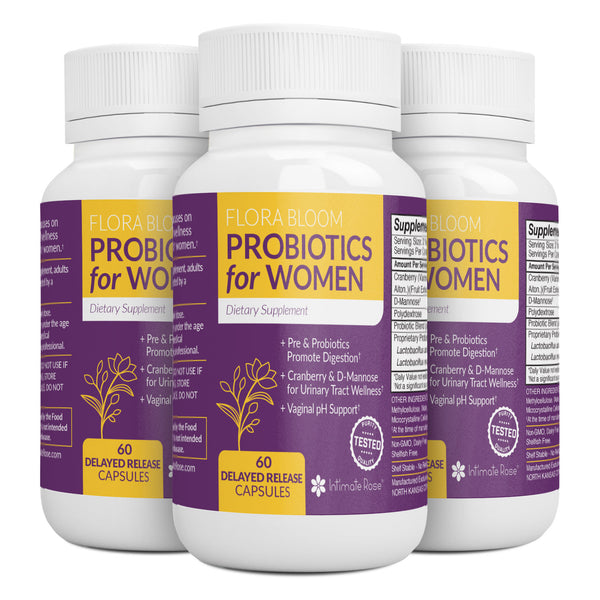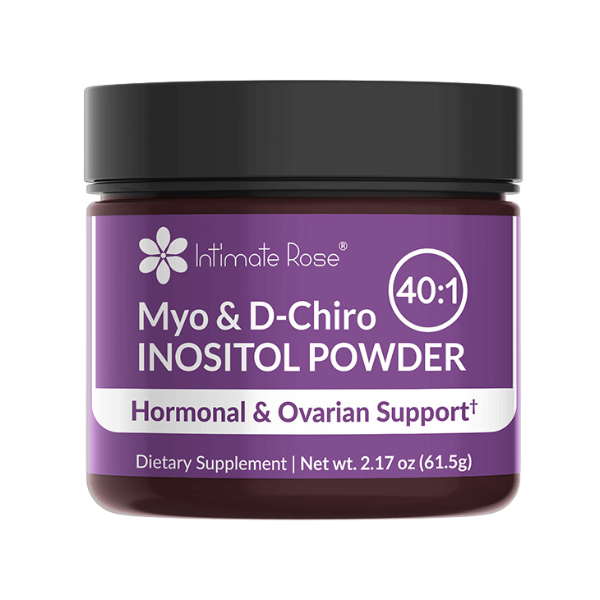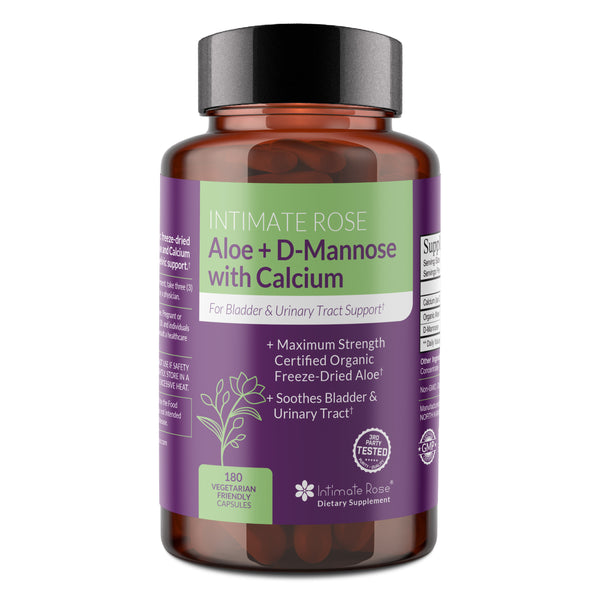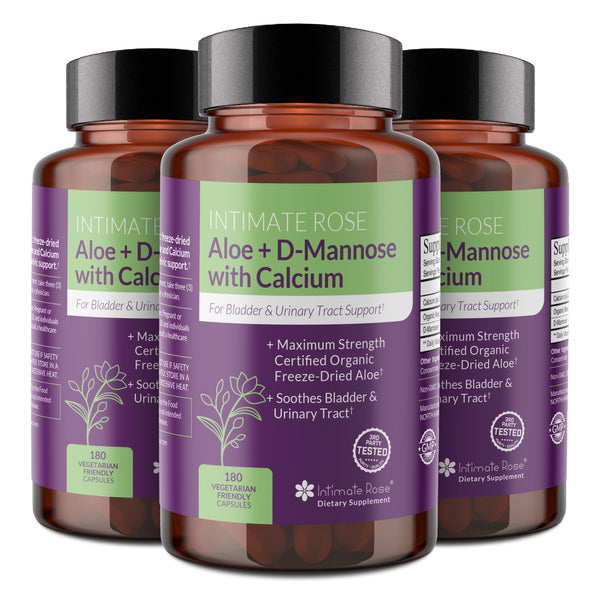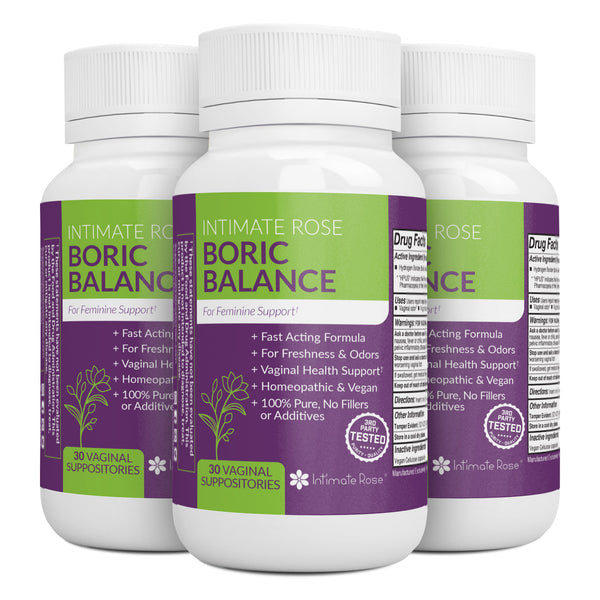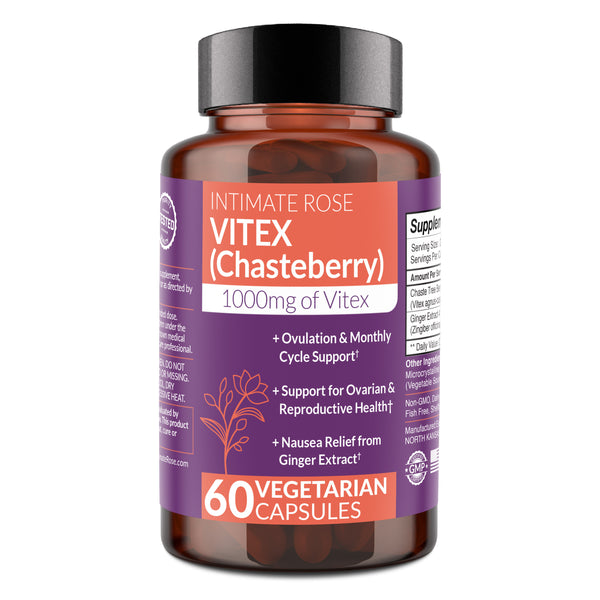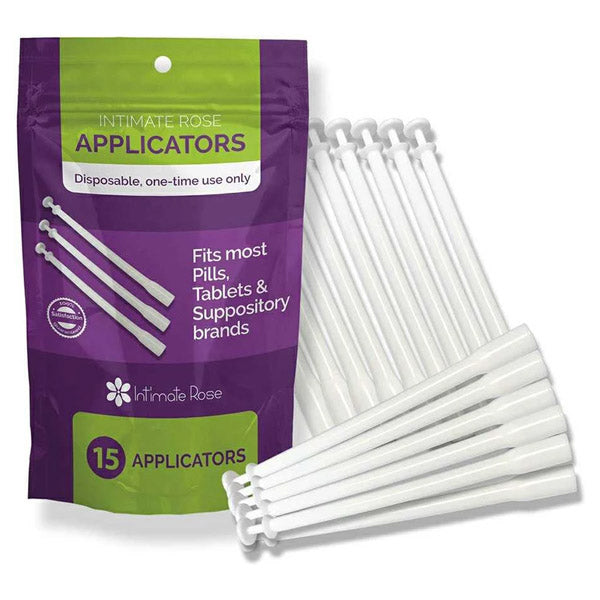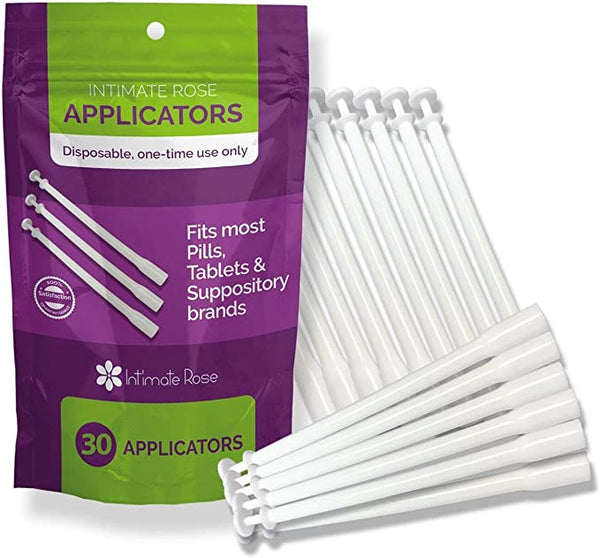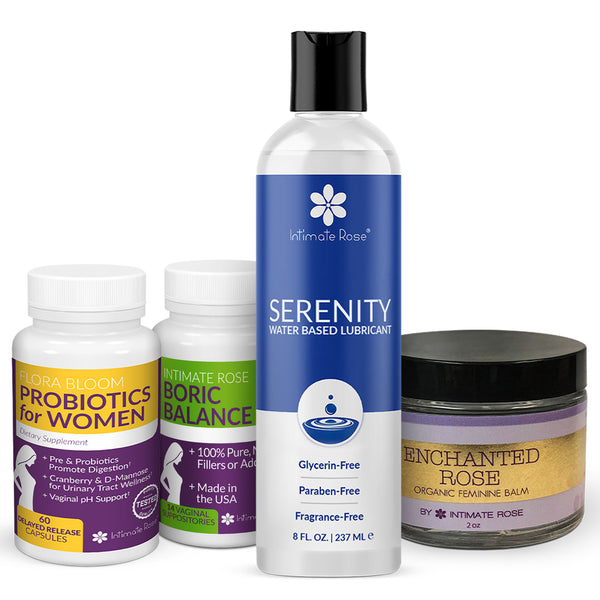Probiotics | Discharge | Swelling | Discoloration
The body experiences many changes during pregnancy, including obvious physical changes like a growing abdomen and larger breasts.
However, it is also important to understand the subtle changes to the body, and particularly how pregnancy affects vaginal health.
Knowing what vaginal changes to expect during pregnancy not only helps expectant mothers to be prepared, it also keeps the baby happy and safe.
The following are some of the most common ways you can expect pregnancy to affect vaginal health.
How Does Pregnancy Affect the Vagina?
Can Cause More Frequent Vaginal Infections
Common vaginal infections during pregnancy include yeast infections, bacterial vaginosis (BV), and trichomoniasis.
Yeast infections can occur because the vaginal secretions during pregnancy contain more sugar. Symptoms include vaginal itching with a yeasty odor and a discharge resembling cottage cheese.
Yeast infections will not harm the baby, but they can be uncomfortable for moms.
Bacterial Vaginosis (BV) is caused by an imbalance of good and bad bacteria in the vaginal microbiome. Symptoms include burning during urination, itching, and a gray vaginal discharge with a fishy odor.
BV infections left untreated have been linked to miscarriage, pre-term labor, and low birth weight.
Trichomoniasis is a sexually transmitted infection that can cause pregnancy complications and premature birth. It is caused by participating in unprotected intercourse with an infected partner.
Symptoms include vaginal itching and redness, pain during urination, and a putrid-smelling yellow/green colored discharge.
Due to the effects that trichomoniasis can have on an otherwise healthy pregnancy, it is best to see a doctor for immediate diagnosis and treatment.
Things Off Down There?
Probiotics For Vaginal Infections
The ‘good’ bacteria in probiotics, known as lactobacilli, not only help to improve digestion, they also play a vital role in maintaining a healthy vaginal pH balance.
Adding a probiotic, like Flora Bloom Probiotics for Women from Intimate Rose, as a daily supplement can significantly help to balance vaginal pH, as well as improve digestion and lower the risk of recurring yeast infections and bacterial vaginosis.
More Vaginal Discharge
Vaginal discharge, caused by higher levels of estrogen and progesterone is one of the most obvious changes to the vagina during pregnancy. This is due to increased blood flow and volume.
During pregnancy, vaginal discharge should be white and milky with a mild odor that may be a little more noticeable than pre-pregnancy.
Wearing unscented pads or panty liners can help when it becomes heavier toward the end of pregnancy.
Swelling in the Vagina
A woman’s blood flow significantly increases during pregnancy to support the development of her growing baby. As a result, the labia and vagina can appear fuller and swollen. This natural swelling can also lead to a heightened sense of sexual arousal in pregnant women.
If vaginal swelling is accompanied by any itching, burning, or foul-smelling discharge, make an appointment to visit your doctor.
Vaginal Discoloration
Sometimes the hormonal changes that occur during pregnancy can cause women’s vaginas and labias to darken. Some even take on a blue-ish tint. This is considered perfectly normal, as long as it is not accompanied by any itching, burning or foul-smelling odor.
Can Pregnancy Cause Vulva Varicose Veins?
Varicose veins of the vulva, aka Vulvar Varicosities, can often occur during pregnancy. This is due to the increased blood flow and volume to the pelvic area, as well as a general decrease in how fast blood flows from the lower body to the heart during pregnancy.
Symptoms include a feeling of pressure and discomfort in the vulva and vaginal area. Applying a cold compress or a heat pack can relieve symptoms, as well as wearing supportive underwear, and elevating the hips when sitting or lying.
Bleeding
During the first trimester of pregnancy, a little vaginal bleeding is quite common. This is thought to be caused by the increased blood flow and volume to the pelvic area, as well as the fertilized egg implanting in the uterus.
If vaginal bleeding is accompanied by severe or painful cramping and a heavy vaginal discharge, it could be a sign of miscarriage.
Any vaginal bleeding in the second or third trimesters could be cause for concern and an immediate doctor's visit would be advisable.
A pink-colored mucous toward the end of pregnancy, aka a bloody show, signals the start of labor.
The Ultimate Vaginal Bundle
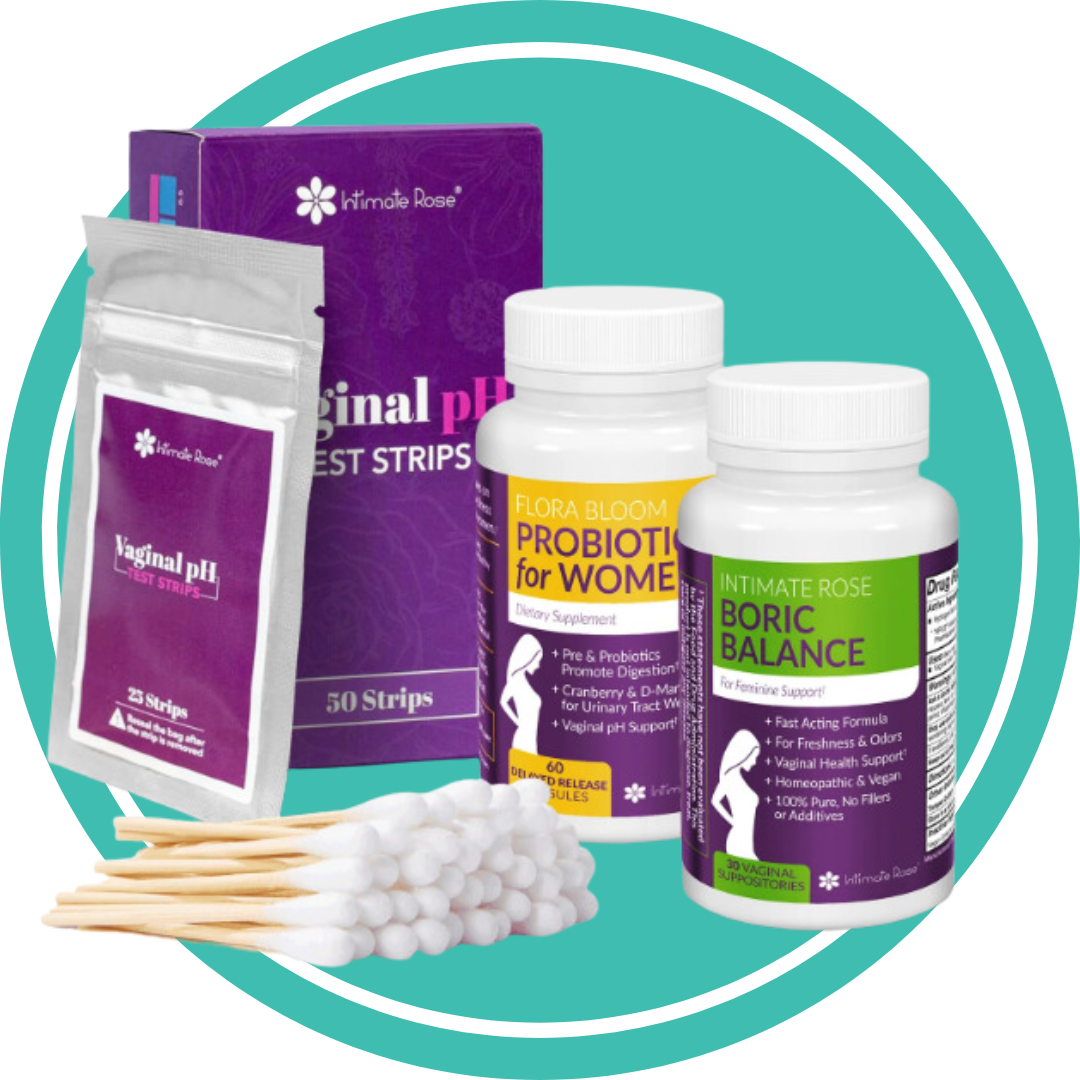
Vaginal Health After Pregnancy
After giving birth, all mothers will experience some form of swelling, bruising, discomfort, and pain. The good news is these symptoms generally disappear after a few weeks.
However, some additional discomfort can be expected from any vaginal tearing or if the area between the vagina and anus were cut to help the birthing process.
Vaginal bleeding is also normal after giving birth. For the first day or two after delivery, heavy bleeding may include clots. The bleeding should gradually lessen over the following six weeks.
In addition, the vagina can feel bigger and wider after giving birth. But most women’s vaginas will regain their natural elasticity within a few weeks. Kegel exercises or Kegel Exercise Weights from Intimate Rose can significantly help the vagina to regain its pre-pregnancy elasticity after childbirth.
Conclusion
Vaginal health is important during pregnancy and childbirth. Understanding how each stage of pregnancy affects vaginal health helps to minimize risks for both mothers and babies.
To ensure vaginal health during and after pregnancy refrain from using any scented pads or tampons, avoid douching, and instead wash the vagina with warm water and unscented soap.
Wipe front to back after using the bathroom, stay hydrated, practice safe sex, and consider taking a probiotic during pregnancy to help balance the pH of the vagina to prevent bacterial infections.
Always consult with your doctor before starting with a new supplement while pregnant. And when in doubt about vaginal discharge or any other vaginal concerns during pregnancy, see your health practitioner.
References
American Pregnancy - Vaginal discharge during pregnancy - americanpregnancy.org/pregnancy-health/vaginal-discharge-during-pregnancy/
American Pregnancy - Yeast infections during pregnancy - americanpregnancy.org/pregnancy-complications/yeast-infections-during-pregnancy/
News Medical - Vaginal Microbiome During Pregnancy
https://www.news-medical.net/health/Vaginal-Microbiome-During-Pregnancy.aspx
American Pregnancy - Bacterial vaginosis during pregnancy. (2015, August)
americanpregnancy.org/pregnancy-complications/bacterial-vaginosis-during-pregnancy/
American Pregnancy - Trichomoniasis During Pregnancy – https://americanpregnancy.org/healthy-pregnancy/pregnancy-complications/trichomoniasis-during-pregnancy/
Medical News Today - Vulvar varicosities: What to know about varicose veins on the vulva - https://www.medicalnewstoday.com/articles/321661
American Pregnancy - Bleeding during pregnancy - americanpregnancy.org/pregnancy-complications/bleeding-during-pregnancy/

Things Off Down There?




